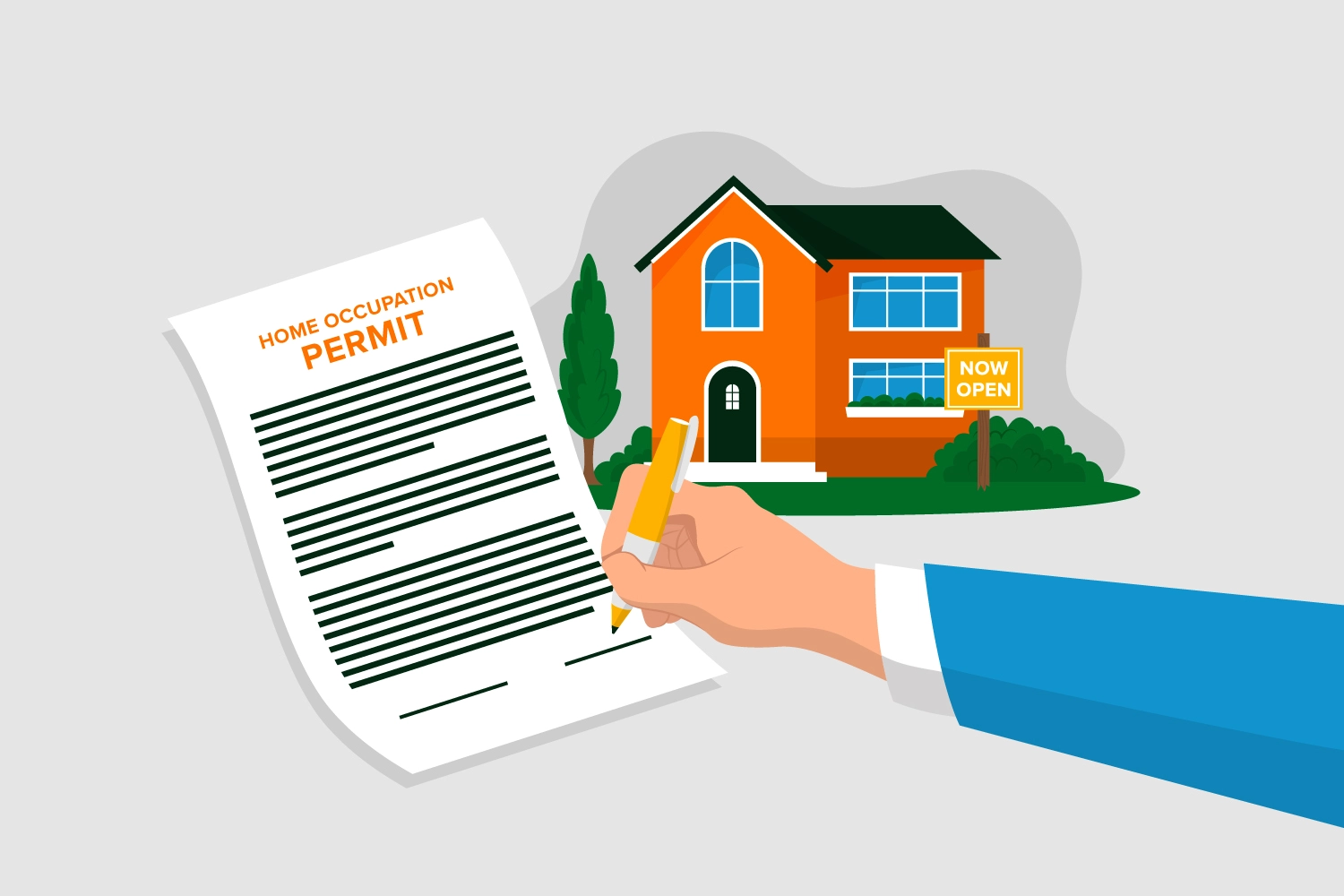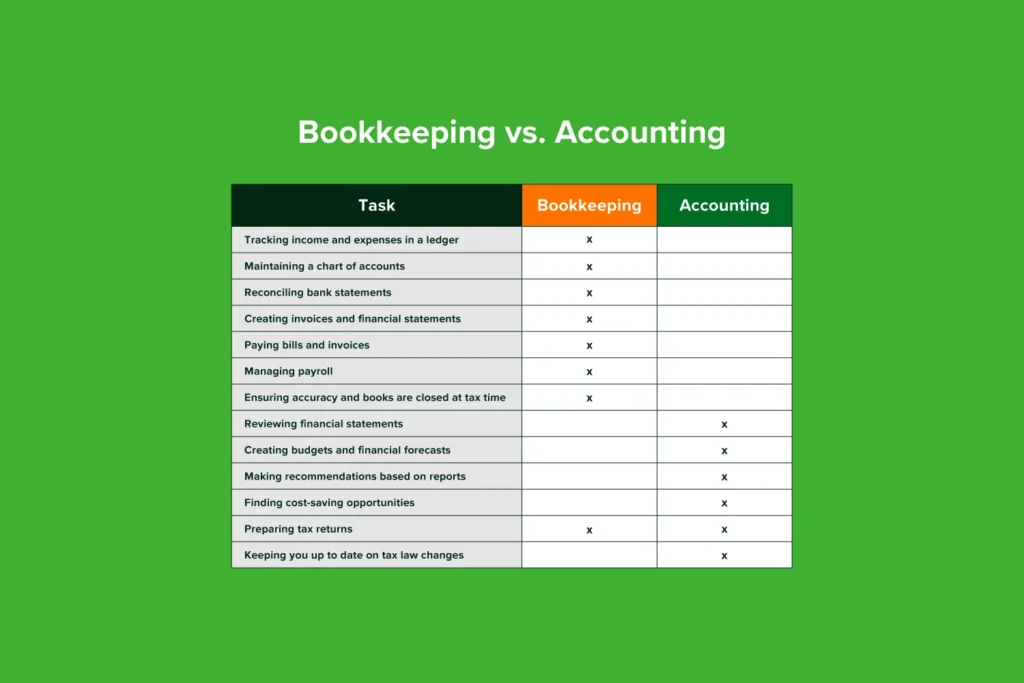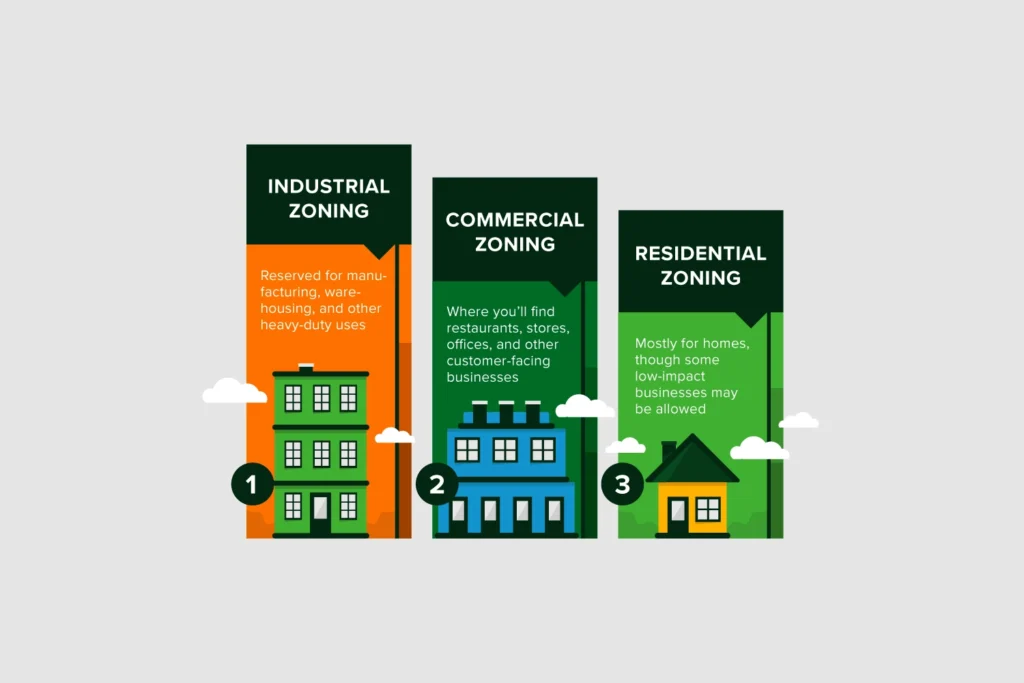Disclaimer: The articles published here on the City of Eau Claire Economic Development Division website are meant to be a helpful starting point as you explore doing business in our community. They’re not the final word on requirements or what’s best for your unique situation. We always recommend checking in with legal, financial, or other professionals for advice tailored to your business.
You probably already know this, but one thing you definitely don’t want to skip when you’re launching a business in Eau Claire is checking which licenses and permits apply to your work. Thankfully, most businesses in Eau Claire don’t need a general business license, but depending on your industry, location, or services, there might still be a few hoops to jump through at the city, county, or state level.
Below, we’ve rounded up the most common business licenses and permits needed in Eau Claire so you have an idea of what to expect.
Zoning & Occupancy Approvals
Before you sign a lease and open your doors, it’s important to confirm that your location is properly zoned for your type of business. Zoning laws determine what kinds of businesses can operate in certain areas, so what works for a retail shop downtown might not be allowed in a residential neighborhood or industrial park.
If you’re unsure whether your business fits the zoning for a specific property, contact the City of Eau Claire Planning Division before moving forward. They can verify if your proposed use is allowed or if you’ll need to apply for rezoning, a conditional use permit, or a variance.
Beyond zoning, think about your space itself. If you plan to make physical changes like building walls, installing equipment, updating plumbing, or putting up signage, you might need one or more of the following permits:
- Building Permit – For structural changes, remodeling, or new construction.
- Electrical or Plumbing Permit – Needed for updates to wiring, lighting, fixtures, or plumbing systems.
- Sign Permit – Required for most exterior signs, including awnings, monument signs, and illuminated displays.
- Certificate of Occupancy – Required when moving into a new building or changing how the space is used (for example, converting retail into a café).
Each permit helps ensure your building meets local safety codes and is safe for customers and employees.
You can check zoning and permitting requirements or start a permit application through City of Eau Claire Inspections Division too. They’re a great resource if you’re unsure what approvals you need and can guide you through the process.
No matter what, don’t wait until the last minute. Some approvals take time, so getting ahead of the process can help you avoid delays when you’re ready to open.
Home-Based Business Approvals
Whether it’s consulting, an online shop, or a small craft studio, many entrepreneurs start as home-based businesses, and Eau Claire supports that. Depending on your business type and neighborhood though, you might need a Home Occupation Permit from the City. This ensures your business won’t disrupt neighbors or change the character of your residential area.
Rules usually focus on:
- Traffic & Parking: Your business shouldn’t create noticeable increases in traffic, deliveries, or parking issues.
- Noise & Nuisance: Excessive noise, odors, or vibrations are restricted.
- Signage: Limits exist on the size, lighting, and placement of business signs in neighborhoods.
- Space Usage: Some permits limit how much of your home or property can be used for business purposes.
Typical home-based businesses that qualify include professional services that involve serving customers at your place of residence. If you’re doing on-location photography or making crafts to sell at a local maker’s market off-site, you’re usually in the clear. But if you plan a commercial kitchen or a noisy repair shop, for example, restrictions may apply, or commercial zoning might even be required.
Talk to the City’s Planning Division to be sure. They’ll help you understand what’s allowed and set you up for success without headaches later. After that, applying for a Home Occupation Permit is straightforward—usually a form, review, and sometimes a site visit.
🔗 Start Here: City of Eau Claire Planning Division ›
Sign Permits
If you plan to add a new sign to your storefront or business—whether it’s a bold illuminated sign or a simple plaque—most exterior signs in Eau Claire need a sign permit.
This is especially true if your sign is:
- Mounted on the building’s exterior
- Illuminated or backlit
- Free-standing or near the street or sidewalk
The City regulates signs to keep neighborhoods and business districts attractive, safe, and orderly. Permits ensure your signage meets size, lighting, placement, and safety standards, so there’s no giant blinking billboards where they don’t belong or are a nuisance to neighbors.
Before ordering or installing your sign, check in with the City of Eau Claire Planning Division and Inspections Division. They’ll review your plans to make sure they meet zoning and sign codes, helping you avoid costly re-dos or removals. If you’re in a historic district or special zoning area, extra design guidelines might apply. Early conversations with Inspection Services can smooth the process.
Getting your permit usually involves submitting an application with size, materials, lighting specs, and installation plans. Then once your plan is approved, you’re set to start attracting customers with your fresh look.
Seller’s Permits
If you’re selling goods, whether it’s t-shirts, baked goods, handmade candles, artwork, or home décor, you’ll need a Wisconsin Seller’s Permit. This lets you legally collect and remit sales tax to the state.
It doesn’t matter if you’re selling from a storefront, online shop, farmers market booth, or mobile pop-up either. If you’re selling tangible products in Wisconsin, this permit is essential. You can apply through the Wisconsin Department of Revenue (DOR) online or by mail. The process is straightforward and usually free unless you’re applying for multiple licenses at once.
You’ll need to provide:
- Your Federal Employer Identification Number (FEIN) or Social Security Number (SSN)
- Your business structure (LLC, sole proprietor, etc.)
- A brief description of what you’re selling
- The address(es) where you’ll conduct business
Once approved, the DOR will issue your permit and assign a tax filing schedule—monthly, quarterly, or annually—based on your sales volume. Even if you have no sales in a period, you still need to file. Beyond that, your Seller’s Permit remains active as long as your business operates, but you must keep your account in good standing by filing and paying on time.
If you’re unsure whether you need one, the Department of Revenue has a helpful Sales & Use Tax FAQ section on their website, or you can contact them directly for guidance.
🔗 Start Here: Wisconsin Department of Revenue ›
Food Establishment Licenses
Planning to serve coffee, cocktails, cupcakes, or anything in between? If your business prepares, sells, or serves food or drinks, you’ll need a license from the Eau Claire City-County Health Department before opening.
The type of food license depends on how and where you operate:
- Restaurant License – For businesses preparing and serving food on-site, including dine-in, takeout, or delivery. This covers restaurants, cafés, bakeries, bars, and some coffee shops.
- Retail Food License – For grocery stores, convenience shops, specialty food retailers, or anyone selling prepackaged or bulk foods for off-site consumption.
- Mobile Food Vendor License – Required for food trucks, trailers, or carts to ensure your setup meets health and safety standards.
- Temporary Food Permit – Needed for serving food at festivals, farmers markets, or one-day events even if you hold another license.
You may also need a state-level food license from the Wisconsin Department of Agriculture, Trade, & Consumer Protection (DATCP) if you’re producing, packaging, or distributing food wholesale or outside Eau Claire. This often applies to businesses making baked goods, sauces, snacks, or packaged items.
The application usually involves submitting your menu, a kitchen or prep area layout, and details about your food storage, handling, and sanitation. You’ll also need to pass a health inspection before approval.
Just like zoning and occupancy approvals, factor licensing and inspection timelines into your launch plans, especially if building a new kitchen or buying a mobile unit. Contacting the Health Department early can help avoid delays.
Alcohol Licenses
If you’re thinking about opening a bar, brewery, restaurant, or retail shop that sells alcohol, you’ll need the appropriate alcohol license from the City of Eau Claire to legally sell or serve beer, wine, or liquor.
Different licenses apply depending on what you offer and how it’s consumed:
“Class B” Beer License – Lets you sell beer for on-site consumption (like in a restaurant or tavern) and to-go sales in unopened containers.
“Class B” Liquor License – Covers on-site sale and consumption of liquor and wine, common in bars and restaurants.
“Class A” Beer or Liquor License – For businesses like liquor stores or convenience stores selling alcohol for off-site consumption.
Reserve Licenses – Limited licenses needed when all regular licenses are taken, usually at an additional cost.
Specialty Permits – Exist for outdoor beer gardens, temporary events, and wine sampling rooms.
The application process takes time and typically involves:
- Completing a detailed application
- Undergoing background checks
- Publishing a public notice in the local newspaper
- Receiving City Council approval at a public meeting
Make sure you start the process at least 60 to 90 days before your planned opening. The Eau Claire City Clerk’s Office handles alcohol licensing and can guide you through fees, requirements, and timelines.
If you’re buying an existing business with an alcohol license, don’t assume it transfers either. Alcohol licenses are tied to individuals and businesses, not the location, so you’ll need your own application.
🔗 Start Here: Eau Claire City Clerk ›
Contractor Licenses
Whether you’re an electrician, plumber, HVAC technician, or general contractor, you’ll need a license from the Wisconsin Department of Safety & Professional Services (DSPS) if you’re offering construction work. This state licensing ensures you have the right training and knowledge to work safely and up to code.
Each trade has its own licensing requirements, including exams, continuing education, and insurance. DSPS is your go-to for detailed info on becoming licensed or renewing.
State licensing isn’t the whole story. If your work involves City-owned utilities or public spaces like sidewalks or streets, you’ll also need local permits, such as:
- Right-of-Way Permits – For projects affecting public sidewalks, streets, or infrastructure.
- Excavation Permits – Required if you’ll dig in public areas.
- Bonding or Insurance – The City may require bonds or specific insurance to protect public property and ensure completion.
These local permits keep projects safe and organized. The City Inspections Division handles these approvals and can guide you. If you’re new to contracting in Eau Claire, check with DSPS and the City early on; getting all licenses and permits ahead helps avoid costly delays once you’re ready to take on projects.
Salon & Personal Care Licenses
Hair salon, nail studio, spa, and personal care business owners will need licensing through the Wisconsin Cosmetology Examining Board through the Department of Safety & Professional Services, which regulates cosmetology, esthetics, nail tech, and barbering professionals. Each service provider needs an individual license, involving exams and required training hours.
Your business location also needs a Cosmetology Establishment License from the state, confirming your salon or spa meets health and safety codes. Inspections for this licensing focus on sanitation, tool sterilization, ventilation, plumbing, and overall safety to protect clients and staff.
When it’s time to schedule an inspection, prepare your space carefully. Cleanliness, organized workstations, proper chemical storage, and functioning equipment help inspections go smoothly.
If you’re renovating or opening a new salon, check local zoning rules too. Some neighborhoods have restrictions or require a Home Occupation Permit for home-based salons.
🔗 Start Here: Wisconsin Cosmetology Examining Board ›
Child Care Licenses
For those who are dreaming of opening a daycare, preschool, or early childhood education center, you’ll need a license from the Wisconsin Department of Children & Families (DCF). And if you run an in-home operation, the City may require zoning approval or a Home Occupation Permit. Both ensure your facility provides a safe, healthy, and nurturing environment for kids, as well as peace of mind for parents.
The licensing process includes:
- Detailed Application: Covering your program, staff qualifications, building safety, and care plans.
- Background Checks: For all staff and owners, including fingerprinting, to ensure child safety.
- Training Requirements: Staff must complete training on child development, first aid, CPR, and more. DCF offers resources to meet these standards.
- Health & Safety Inspections: Regular checks to ensure compliance with state health, fire, and safety codes.
Receiving your licenses and permits can take several months, so start early. Both DCF and the local health department are great supports during this journey.
Other Specialty Licenses
Every business is unique, and there are cases aside from these common professions where you’ll need specialty licenses beyond the usual ones.
Here are some examples:
- Tattoo & Body Piercing Studios: Need to meet health and safety standards set by the Wisconsin Department of Health Services and local health authorities, including regular inspections and a state license.
- Lodging Facilities: Hotels, inns, B&Bs, and short-term rentals (like Airbnb) require licensing through the Wisconsin Department of Agriculture, Trade, & Consumer Protection (DATCP), plus local permits or inspections for fire safety and zoning.
- Taxi, Rideshare, & Transportation Services: May require permits at the local and state levels, including vehicle registration, driver background checks, and commercial insurance.
- Other Specialty Licenses: Businesses like massage therapy, firearms sales, adult entertainment, or hazardous materials hauling may have additional requirements. It’s important to check early with state and local authorities.
If you’re entering a niche field that needs special oversight, your best bet is to contact the Wisconsin Department of Safety & Professional Services (DSPS). They can help you start to identify the permits you need and can connect you with the right resources at the state level.
Still Not Sure What You Need?
Figuring out which licenses and permits you need can be confusing. That’s why the City of Eau Claire Economic Development Division is here to help you navigate the process. Whether you need zoning advice, contacts for state agencies, or connections to where to go next, we’re happy to point you in the right direction.
Article Cover Illustration by Freepik





